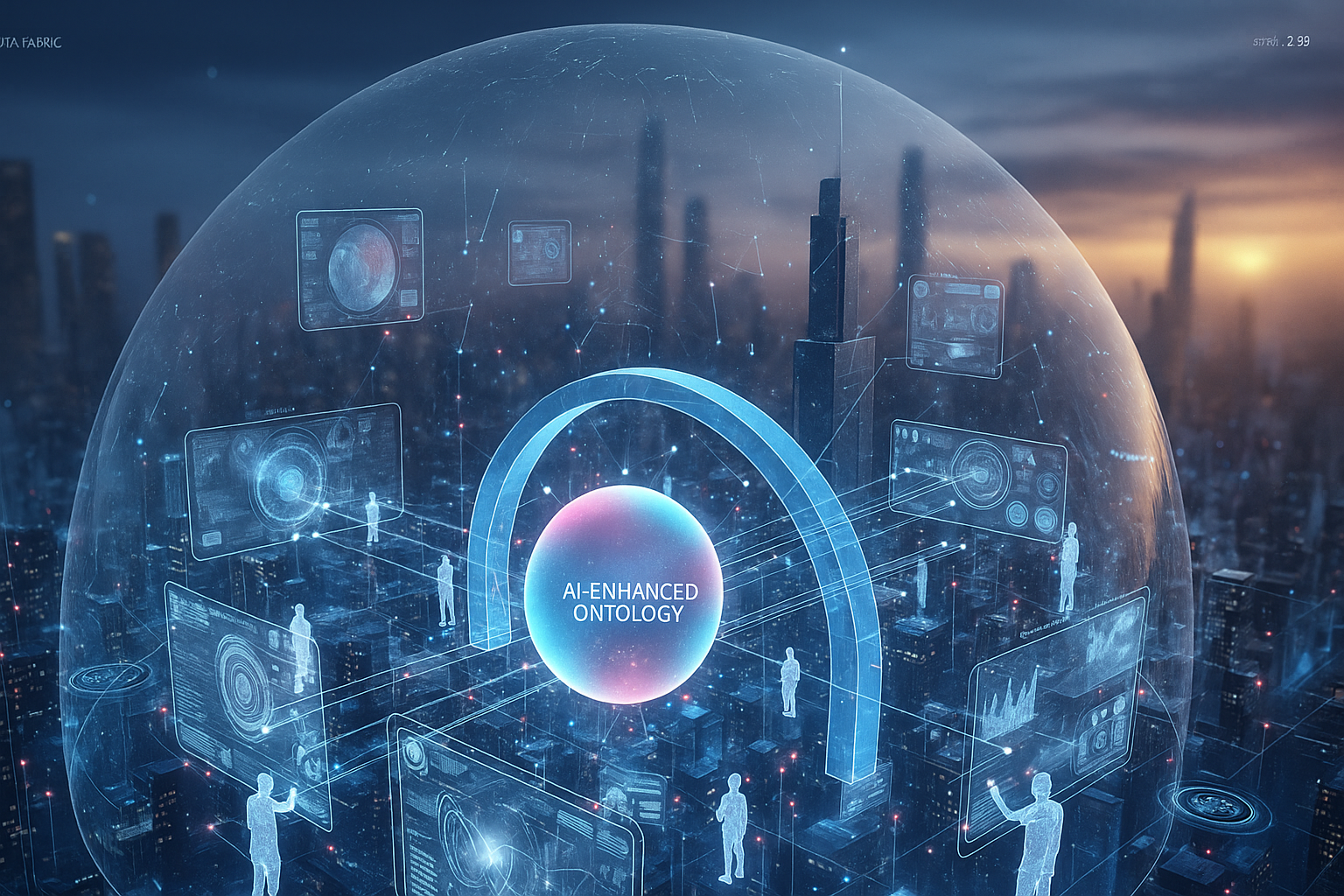
Your data isn’t ready for AI. Nextspace makes it ready.

Why Most AI in Infrastructure Fails — and How Ontology Fixes It
Every boardroom is talking about AI. Predictive maintenance, generative design, automated inspections — the promises are huge. But here’s the uncomfortable truth: most AI initiatives in engineering and infrastructure stall before they deliver value.
The problem isn’t the algorithms. It’s the data.
The Hidden Barrier: Data That Can’t Talk
Engineering, GIS, BIM, IoT, ERP, and work order systems all speak different languages. Each runs on its own taxonomy and schema. The result?
· Silos of information
· Blind spots indecision-making
· Unreliable insights when AI tries to make sense of it all
If your data isn’t connected, contextualized, and queryable, it isn’t ready for AI.
TheOntology Advantage
At Nextspace, we believe the solution isn’t another file format, dashboard, or integration patchwork. It’s a unified, dynamic ontology — a single model that brings together every source of truth:
· Engineering models (CAD, BIM)
· Spatial data (GIS, LIDAR, photogrammetry)
· IoT and operational data (sensors, SCADA, ERP, Maximo, SAP)
· Financials, documents, and work orders
This ontology doesn’t just store data. It organizes it into relationships and context, making it usable for both humans and AI.
Visual Proxies: A Unique Breakthrough
One of our differentiators is the concept of visual proxies. Instead of locking you into a single representation, every entity can be visualized dynamically:
· 2D schematics
· Maps
· 3D and 4D models
· Cross-referenced documents and diagrams
And because we timestamp every attribution, you can animate systems across past, present, and future states — a critical capability for simulation, analytics, and AI-driven forecasting.
Ready for Humans and AI
This dual design is deliberate:
· For humans: a visual interface that makes complex systems understandable.
· For AI: APIs and MCP(Model Context Protocol) endpoints that allow agents, simulations, and analytics stacks to work on the same ontology.
It’s a bridge between human intuition and machine intelligence.
A Legacy of Hard Problems
This approach didn’t come out of nowhere. My journey started with Right Hemisphere, the company I founded in the 1990s. There, we:
· Built the 3D PDF framework licensed to Adobe.
· Collaborated with Boeing on the first PC render of a billion polygons.
· Enabled data collaboration across Lockheed, Northrop, and Pratt & Whitney for the Joint Strike Fighter project.
· Published the first 3D PDF with Harvard and Nature.
SAP acquired Right Hemisphere in 2011. What I learned from that chapter is clear: an “uber3D file format” isn’t enough. The future isn’t about files — it’s about ontologies.
That’s why I relaunched Nextspace in 2018. To take everything we’d learned in aerospace and defence and apply it to the world’s hardest infrastructure challenges.
The Payoff: AI That Actually Works
When you unify your data with ontology, you unlock:
· Trustworthy data pipelines for AI training and inference
· Faster deployment of predictive models and simulations
· Improved safety, efficiency, and profitability across your assets
We’re already proving this with aerospace, airports, rail, and mining operators around the world.
What’s Next
Today, we’re extending the platform with LLM interaction, natural language search, and Gaussian splat visualization — all available in limited-release beta to our customers.
It’s just the beginning of what an ontology-first approach to digital twins will enable.
Takeaway: If your AI project is stalling, the problem isn’t the AI. It’s the ontology.
At Nextspace, we’re here to make your data ready for AI. Let’s connect to see what an ontology-first digital twin can do for your business.



